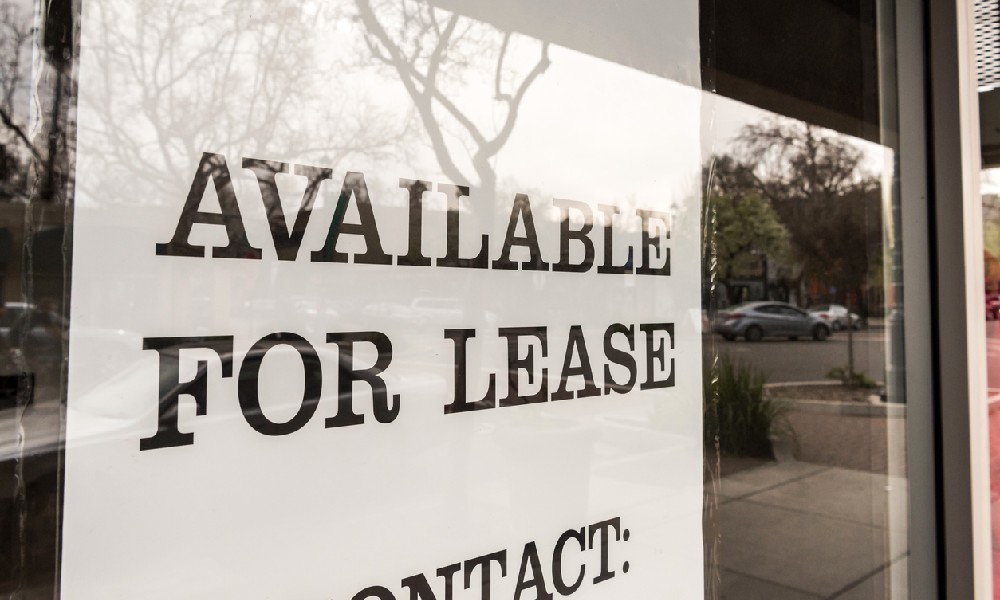Deciding to lease retail space for any business can feel overwhelming, but you can simplify this process by conducting comprehensive background research on the critical elements of your lease. Commercial leases are less regulated than residential leases covering longer time frames, but they offer greater flexibility in negotiating terms.
Your ability to understand different lease types and carefully interpret the detailed terms and conditions will help you successfully lease retail space. This guide takes a deep dive into the key elements of retail lease agreements any tenant should understand before commencing negotiations.
Understanding the Different Types of Commercial Leases
It is crucial before leasing retail space to have a sound understanding of all the different types of commercial leases on the market and which is most appropriate for your business model. Here is some detail on the most common types:
Full Service or Gross Lease
The tenant is responsible for the base rent, but the landlord covers some or all of the building expenses – such as maintenance fees, insurance, and real estate taxes. This type of lease can include the following variations:
- Single Net Lease
The tenant pays utilities and property tax, and the landlord is responsible for maintenance, repairs, and insurance. - Double Net (or Net-Net) Lease
The tenant pays utilities, property taxes, and insurance, and the landlord covers maintenance and repairs. This is a common approach for office leases. - Triple Net Leases (NNN)
The tenant is responsible for all building costs, and the landlord has to pay for any structural repairs. - Full-Service Gross or Modified Gross Lease
The tenant and landlord split structural repairs, operating expenses such as property taxes and insurance, and utilities as base rent. This is also known as a modified net lease.
It’s wise to know these variations and what they contain, because the differences can represent substantial potential costs to the tenant.
Percentage Leases
These are often used for retail and shopping malls, where the tenant pays base rent and a percentage – typically from 5% to 10% – of all retail sales to the landlord. Be ready to negotiate to get the best percentage, and never agree to more than 10%.
Absolute Leases
Absolute leases resemble Triple Net Leases (NNN). They are commonly signed by large national companies with excellent credit, such as Walmart, that need large properties. Tenants pay their base rent and all other building expenses (taxes, insurance, maintenance), including roof and structural repairs.
After deciding on the right lease type, the next step is to scrutinize the main elements of your lease agreement. This is an excellent time to consider tenant representation services if you are uncertain and want to negotiate the best deal.
Read the Fine Print: 8 Terms & Conditions to Know

You can never be too careful about doing your homework before making any commitment as significant as a lease agreement. You must have a comprehensive understanding of all the terms and conditions before you sign, including how they might change throughout the lease and after its conclusion.
1. Rent and Lease Term
Know your exact start and end dates and consider whether a longer lease term is a better option than a shorter term.
2. Security Deposit
The security deposit must represent fair market value for the site you are leasing. You should also research how to get your full security deposit back at the end of your term.
3. Rent Increases
Understand how much your rent could increase over the lease term. This amount is usually expressed as a percentage over a specified time frame.
4. Difference Between Rental and Usable Square Feet
Understanding the difference between rentable and usable square feet and maximizing your business’s performance across both is essential when agreeing on a lease.
5. Permitted Improvements and Signage
Know what signage you can use to advertise your business and what you can do to expand the space or change the layout.
6. Common Area Maintenance Fees and Taxes
Common Area Maintenance charges (or CAMS) are ongoing expenses retail tenants must share to cover the daily operations of a property’s common areas. Some of these are negotiable, and any that fall under the landlord’s capital costs should be the landlord’s responsibility. You should also understand your taxes and who is responsible for them; check the lease for phrases such as “Contest of Taxes” describing tenants’ rights to challenge amounts being levied.
7. Holdover Rent and Extension Clauses
Holdover rent applies when a tenant stays in the property after their lease term has expired and can result in tenants being charged as much as 250% of their regular rent. Holdover and extension clauses are routinely included in commercial leases, but you can apply for an extension of time before the lease expires. If an extension clause is not included, ask your tenant representative to insist on its addition.
8. Personal Liability/Guarantees
Many retail lease agreements require a personal guarantee that you will still pay rent on time if your business fails.
Often you have little recourse if you end up in a situation you weren’t prepared for, so be thorough about understanding the items above. Even a small clause in an agreement can turn into a big surprise that could hurt your business.
The Importance of Having a Contingency Plan
Any business that’s around long enough will experience an unexpected issue sooner or later. Successful tenants will make sure their lease leaves them prepared to adapt and survive. You should always plan for the following contingencies:
Competitors in Your Retail Space
A men’s clothing retailer could be in trouble if a Nordstrom were to move next door or if a larger tenant that attracts traffic decides to move away. Consider adding a co-tenancy clause that allows you to pay reduced rent in such situations.
Late Fees
Know the penalties for late payment. These are usually expressed as a flat fee or a percentage of your monthly rent. Reconsider signing any retail lease that has exorbitant late fees, as that may signal other hidden penalties.
Exit Strategies or Subletting
Know whether your lease permits early or emergency exit or contract cancellation without severe penalties, in case you need to end your lease suddenly. Establish whether your lease agreement will allow you to sublet part of the property or whether there is an appropriate transfer structure in which you can sell your business (and your lease) to an interested party.
Nondisturbance Agreements
A bankruptcy by the landlord could force you to relocate and start again. Nondisturbance agreements ensure business continuity while the property owner or landlord’s business is liquidated or suffers other disruptions.
Rent Abatement After a Fire/Property Damage
Many lease agreements include rent abatement clauses to reduce or suspend payments if an event such as a fire or earthquake damages the property and prevents you from operating.
Entering into a three- or five-year commercial lease is a big commitment and a complex process for any small business. Getting expert advice will help you avoid overpaying on your contract and protect your business from surprises that might otherwise hurt your venture.
Consult our Skilled Commercial Real Estate Professionals
The experts at The Genau Group understand the importance of finding the right commercial space to meet your business’s financial and operational needs. Our diverse team is experienced at giving timely advice and negotiating a lease contract that will help you grow your business while covering all the bases.
We will put you in a space that will leave you feeling confident and excited about what’s next for your business. Contact our team today to discuss how to proceed with your commercial lease.





